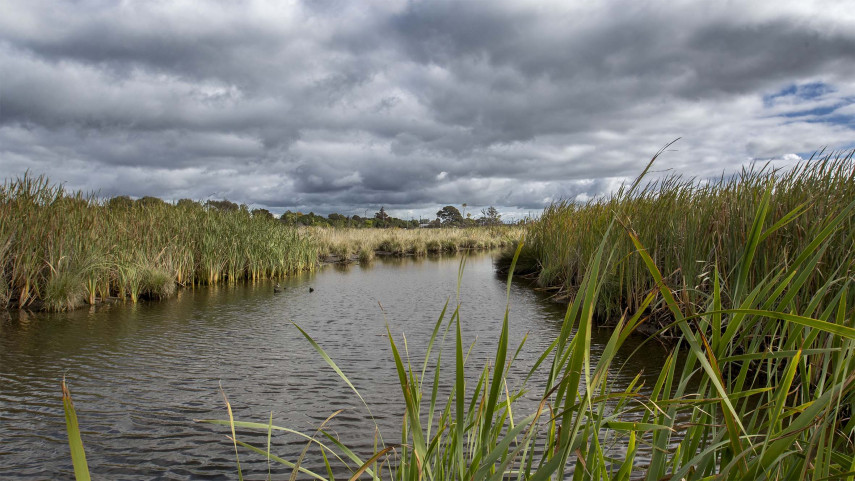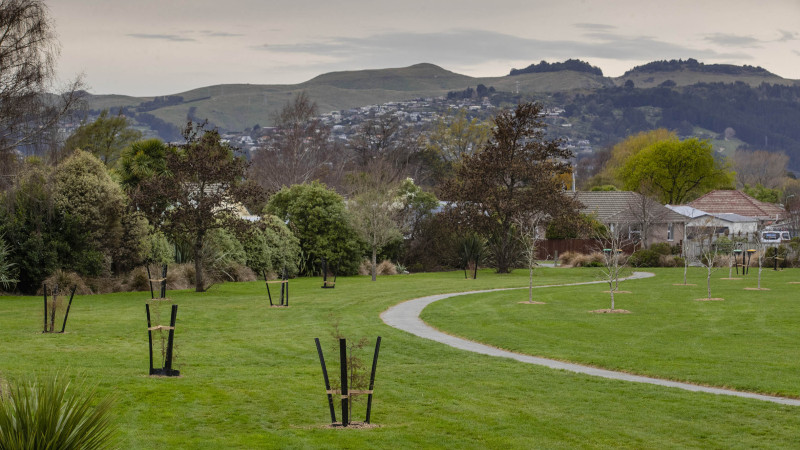
Climate change priorities front and centre

Share this story
Helping Christchurch and Banks Peninsula to adapt to the impacts of climate change is a key focus of our 10-year draft budget – through reducing our emissions, supporting changes to the ways we travel and increasing our flood protection network.
As the challenges presented by more frequent and severe weather events including heavy rain, extreme heat and drought continue to grow, investing in adaptation and building resilience has become a priority for the Council and our communities.
To meet these challenges over the period of the Long Term Plan 2024-34, and subject to Government funding decisions, we will be undertaking the following projects to help mitigate climate change over the next 10 years:

Funding supports the development of the Major Cycle Routes.
- Spending $101 million on public transport infrastructure and bus route reliability.
- Supporting the ongoing development of cycling infrastructure across the city with $199 million for the Major Cycleway Network.
- Increasing the amount of tree coverage and canopy across the city through delivery of the $18 million Urban Forest Plan.
We’ll also be taking action with $1 billion over 10 years on projects that will help us adapt and build our resilience to climate change. These include:
- Improving our ability to cope with more extreme rain and flooding. We’ll put $525 million into measures that will reduce the risk from flooding and improve our waterways.
- Supporting the development of the Ōtākaro Avon River Corridor through $490 million of funding.
It’s important to note that all our projects, throughout their planning, design, development and construction, take climate change mitigation and resilience into account. The actions outlined above are just the more direct examples of spending to support climate resilience.
Options to invest more
To accelerate our adaptation efforts in the diverse environments of Christchurch and Banks Peninsula, we would need additional investment. There are two options for this, both of which would result in a change to the current proposed rates increase in the Draft LTP:
- Bring forward the additional $1.8 million spend currently proposed for 2027/28 to 2024/25. This would allow us to accelerate the Coastal Adaptation Planning Programme and boost community preparedness. This proposal would result in a rates increase of 0.29% (approximately an extra 19 cents a week for the average residential property) from 2024/25.
- Establish a Climate Resilience Fund that would begin to set aside money now to manage future changes to Council assets including moving or raising lifeline roads, protecting water infrastructure and ensuring community facilities exposed to climate hazards are more resilient. The money would be ringfenced to support actions originating from adaptation plans. This proposal would have a 0.25% impact on rates (approximately an extra 16 cents a week for the average residential property) for each year it is implemented over the 10-year LTP period.
We’re asking for feedback on these proposals. Visit ccc.govt.nz/longtermplan to have your say.

The tree coverage and canopy will be increased through the Urban Forest Plan.
